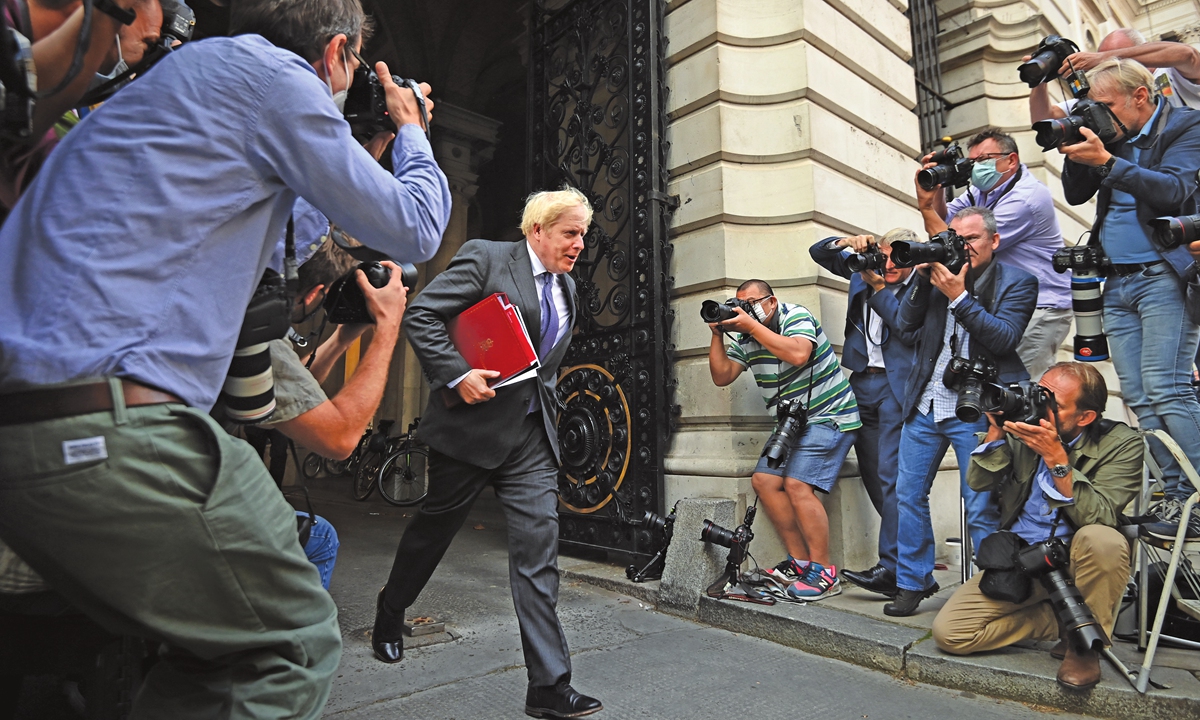UK ready for Brexit trade talks
Source: AFP Published: 2020/10/22 19:58:41
PM Johnson looks set to backtrack on negotiations

British Prime Minister Boris Johnson Photo: AFP
Britain and the European Union were expected to resume fraught post-Brexit trade talks on Thursday after seven days lost to threats and brinkmanship, and with just weeks left to salvage an agreement.The UK had been refusing since October 16 to restart long-running negotiations over a future free trade deal, after EU leaders said at a summit the previous day that London must compromise on the outstanding issues.
British Prime Minister Boris Johnson had signaled he was ready to abandon the process, but following a Wednesday phone call between the two sides' top mediators, his office said there was now a basis for continued talks.
In a joint document, they agreed the UK's David Frost and EU negotiator Michel Barnier would hold a new round of negotiations in London over the coming days, as both sides warn a deal must be struck by the end of the month.
"Talks will take place across all negotiating tables concurrently. Negotiations will take place daily including on weekends, unless both sides agree otherwise," the document said.
However, it cautioned that "nothing is agreed in these negotiations until a final overall agreement is reached."
The breakthrough came hours after Barnier told a session of the European Parliament in Brussels that an agreement was "within our grasp" if both sides compromised.
He added the bloc would proceed on "the basis of legal texts," satisfying British demands for an intensification of the process to finalize a treaty.
The extent of British state subsidies, how to arbitrate future differences and fishing rights remain key sticking points that could still thwart a deal being reached.
London has insisted it is willing to walk away if they cannot break the deadlock, and trade with the bloc using a barebones arrangement governed by World Trade Organization quotas and tariffs.
However, such a no-deal Brexit scenario in just over two months could see a huge disruption to EU-UK business, just as the continent grapples with the economic fallout of the coronavirus pandemic.
Britain formally left the EU in January, but under the terms of its divorce will only be free of EU structures after nearly five decades of tight economic integration from 2021.
Anxiety has been mounting on both sides of the Channel about the likely repercussions of "no deal."
RELATED ARTICLES:
Posted in: EUROPE